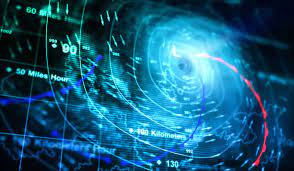 The world is facing an unprecedented challenge in the form of climate change and the increasing frequency of extreme weather events. As global temperatures rise and weather patterns become more erratic, the need for innovative solutions has never been more critical. In this era of technological advancement, artificial intelligence (AI) is emerging as a potent ally in the fight against climate change. This article delves into the ways in which AI is revolutionizing our understanding of weather phenomena, aiding disaster preparedness, and transforming sustainability efforts to build a more resilient future.
The world is facing an unprecedented challenge in the form of climate change and the increasing frequency of extreme weather events. As global temperatures rise and weather patterns become more erratic, the need for innovative solutions has never been more critical. In this era of technological advancement, artificial intelligence (AI) is emerging as a potent ally in the fight against climate change. This article delves into the ways in which AI is revolutionizing our understanding of weather phenomena, aiding disaster preparedness, and transforming sustainability efforts to build a more resilient future.
Understanding Weather Patterns
AI has unlocked the ability to process massive amounts of data at speeds previously thought impossible. When applied to meteorology, AI algorithms can analyze complex weather patterns, historical data, and atmospheric conditions to provide more accurate and timely forecasts. Machine learning models, trained on past weather data, can predict extreme weather events with greater precision, enabling communities to take proactive measures to protect lives and property.
Enhancing Disaster Preparedness and Response
During natural disasters, the speed of response can be a matter of life and death. AI-powered tools facilitate rapid disaster assessment and response coordination. Drones equipped with AI-enabled cameras can assess damage in real-time, providing emergency responders with critical information to allocate resources effectively. Additionally, AI-driven predictive models can assist in identifying vulnerable regions, allowing governments and organizations to allocate resources and create comprehensive disaster management strategies.
Climate Modeling and Prediction
AI-driven climate modeling plays a pivotal role in understanding the long-term effects of climate change. By simulating various scenarios, researchers can gain insights into how different factors contribute to global warming and extreme weather patterns. These simulations guide policymakers in formulating strategies to mitigate the impact of climate change. AI-enhanced climate models are essential tools for making informed decisions on reducing greenhouse gas emissions, transitioning to renewable energy sources, and adapting to changing environmental conditions.
Energy Efficiency and Resource Management
The fight against climate change also involves optimizing energy consumption and resource management. AI-driven solutions analyze energy usage patterns and suggest ways to improve efficiency, thereby reducing carbon footprints. In agriculture, AI-powered sensors monitor soil conditions, weather forecasts, and crop health, enabling precision agriculture techniques that conserve water and minimize chemical usage. These technologies contribute to sustainable practices that promote both environmental and economic wellbeing.
Adaptive Urban Planning
As urbanization continues to surge, cities must adapt to the changing climate to remain resilient. AI supports urban planning by predicting the impact of climate change on infrastructure, transportation, and public services. With this foresight, city planners can design resilient buildings, create efficient public transportation systems, and implement flood-resistant infrastructure. AI-driven simulations aid in devising evacuation plans and allocating resources during extreme weather events.
Conclusion
Artificial intelligence is not a panacea for the complex challenges posed by climate change and extreme weather events, but it is undoubtedly a game-changer in our efforts to mitigate their impacts. By harnessing the power of AI, we can better understand weather patterns, enhance disaster preparedness and response, model climate changes, optimize resource management, and design adaptable urban environments. The synergy between human ingenuity and AI innovation offers a beacon of hope as we navigate the uncertain waters of a changing climate. As we continue to develop and integrate AI technologies, we must ensure that they are used ethically and responsibly to safeguard our planet for generations to come.

